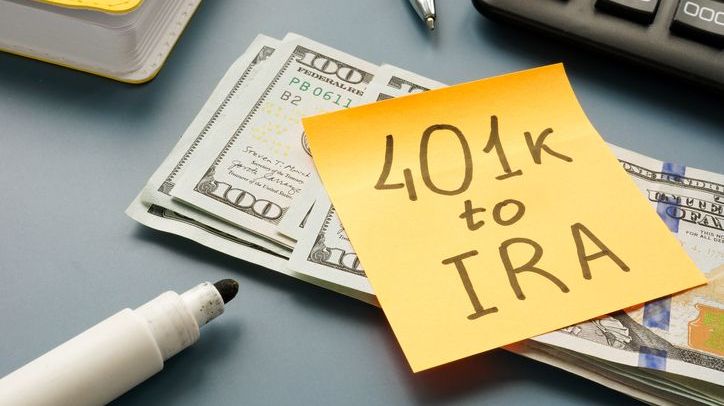If you’ve changed jobs recently, don’t put off deciding what to do with your 401(k) for too long. While you have several options for your account when you leave a job, there’s an estimated 29.2 million 401(k)s that have been left behind with former employers, according to a 2023 analysis from Capitalize. Those accounts hold approximately $1.65 trillion in assets, which can go to waste if account owners forget about their old 401(k)s) or lose track of them. So if you’re one of the 43% to 54% of industry-specific workers found by LinkedIn’s 2024 Workforce Confidence Index survey to be looking for a new job this year, consider what you’ll do with your old 401(k)s.
Pitfalls of Leaving a 401(k) at Your Old Job
- Employers can cash out accounts with less than $1,000 and send you the money. This is considered a taxable event if you don’t roll the money over into a new account within 60 days. It also may be an early withdrawal if you’re younger than 59 ½, triggering a 10% penalty.
- Employers can move accounts worth between $1,000 and $7,000 to an IRA (before 2024, the limit on automatic IRA rollover was $5,000).
- If you experience a financial crisis, you won’t be able to tap money in that old account for a 401(k) loan or hardship withdrawal.
An old 401(k) can also become the victim of “out of sight, out of mind” where the investment mix becomes unbalanced, losses accumulate and the account remains subject to higher fees and fewer investment choices than an IRA. Worst of all, you could lose track of the account or simply forget about the money, costing yourself thousands of dollars.
A financial advisor can help you manage and consolidate your various retirement accounts so you can keep you money under one roof.
What to Do With an Old 401(k)

So what are your options for handling an old 410(k)? Depending on how much money is in the account, you can potentially leave it with your former employer, roll it into an IRA or your new company’s plan, or even cash it out (although this option has some serious drawbacks).
Leave It With Your Former Employer
If your 401(k) balance is more than $7,000, it can potentially stay in your previous employer’s plan. That can work for you if your new job doesn’t offer a 401(k) or if your old account offers better investment options. If you eventually move to a job that offers a 401(k), you can roll the old plan into the new one at that time. That preserves your ability to take loans or hardship withdrawals, which can come only from your current employer’s plan.
Do an IRA Rollover
This is can be a good option, even if your new job does offer its own plan. IRAs typically have lower fees than 401(k) plans and offer a wider range of investment choices, including ETFs, real estate investment trusts, commodity funds and more.
When you do this, request a “direct” transfer and have the money sent directly to the institution that will custody your new IRA. Most financial services firms are more than happy to handle it for you. If you do an “indirect “rollover, you’ll receive a check for your 401k) balance (minus taxes). You’ll have 60 days to deposit the money in another tax-deferred plan, or you’ll face taxes and any applicable penalties. To make that work, you need to deposit the entire amount withdrawn from the 401(k) – including any taxes that were withheld – or you’ll be taxed and penalized on the amount withheld.
Pay Income Taxes and Roll It Into a Roth IRA

You can also consider rolling the money into an IRA and then converting it into a Roth IRA, which is funded with after-tax money. Since your 401(k) contributions were probably made with pre-tax dollars, you’ll have to pay income tax on the amount you send to the Roth account. It’s a good option if you’ve got a long time to go before retirement since your Roth distributions will be entirely tax-free, and, as a younger worker, you may be in a lower tax bracket now than when you retire.
But if you need help assessing whether a Roth IRA rollover is an appropriate move for you, consider speaking with a financial advisor.
You also can withdraw your contributions (but not gains) from a Roth IRA at any time. Another benefit is that Roth IRAs are not subject to required minimum distributions (RMDs), which begin at age 73 (or 75 after 2032). If you have a Roth 401(k), you can to roll it over only to a Roth IRA and not have to worry about income taxes since both accounts hold post-tax money.
Cash Out the Account
If you’re older than 59 ½, you can simply cash out the account and pay the income taxes on the withdrawal. However, if you’re under age 59 ½ and you cash out your old 401(k), you may be hit with a 10% penalty, on top of income taxes. As a result, you should reconsider liquidating the account and instead think about rolling it over or simply leaving it with your former employer.
Bottom Line
It’s important to make a plan for your old 401(k) when you leave a job. While you may be able to leave your account with your former employer, doing so comes with some risk. You can also opt to roll the money over into an IRA or your new company’s 401(k) if they allow it. Simply cashing the money out will trigger income taxes, and potentially, a 10% penalty.
Retirement Account Tips
- A financial advisor can help you figure out an approach to investing and structuring your retirement accounts. Finding a financial advisor doesn’t have to be hard. SmartAsset’s free tool matches you with up to three vetted financial advisors who serve your area, and you can have a free introductory call with your advisor matches to decide which one you feel is right for you. If you’re ready to find an advisor who can help you achieve your financial goals, get started now.
- Keep in mind that retirement account contribution limits are subject to annual changes. Contributing up to the annual maximums can help you build your nest egg faster. SmartAsset’s retirement calculator can help you estimate how much you’ll have by the time you retire and whether it will be enough to meet your projected spending needs.
Photo credit: ©iStock.com/AndreyPopov, ©iStock.com/Dean Mitchell, ©iStock.com/designer491
Read the full article here
















